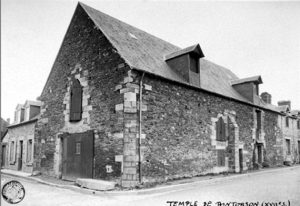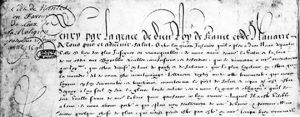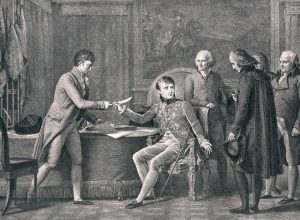The Beaumont Church was in turns a Catholic one and a Protestant one, nowadays it is both
The original church was built in the 15th century for the Benedictine. From the early days of the Reformation, it was used as a temple.
In 1562, the Baron des Adrets, François de Beaumont, looted and burned down the sanctuary. The Protestants then built a new temple.
After the Edict of Nantes in 1598, the Benedictine church was given back to the Catholics. In 1665 the roof and steeple collapsed. In 1716, it was used as a “Desert” worship place.
Shared by two faiths
After the Revolution and the Concordat in 1806, the edifice was awarded to the Protestants and the Catholics under the simultaneum principle. A wall partitioned the church in two, the choir and apse being attributed to the Catholics, the nave and portal to the Protestants.
Such is the present-day situation.



